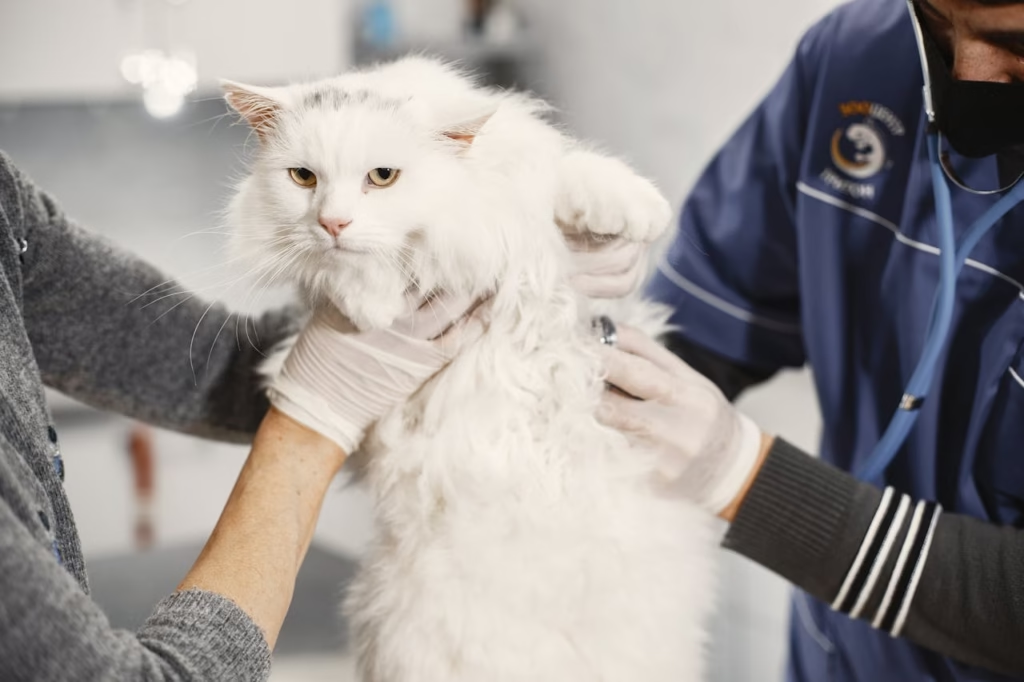Deciding when to euthanize a cat with cancer is one of the most difficult decisions pet owners face. This is a decision that should include a great deal of contemplation, empathy and an understanding of the quality of life your cat actually has. We hope this post helps navigate you on this challenging road. we are discovering about When to Euthanize a Cat with Cancer — How to Know If It’s Time to Say Goodbye ULTIMATE GUIDE IN 2025
Table of Contents
How do you define a quality of life for a cat?
Above all else, the discussion of whether or not to consider euthanasia for a cat affected by cancer will always boil down to quality of life. There are lots of factors that determines the quality of life a cat lives:
Pain & suffering: This is the very first, but by far not last: Is your poor kitty in pain and suffering or cannot be managed with medication?
Poor appetite and weight loss: Is your cat rapidly losing weight after refusing to eat?
Activity: Is your kitty lethargic, inactive, and disinterested in his usual activities?
Mental State: Is your cat behaving confused, anxious, or depressed?

Key Indicators to Watch For?
While each cat will have its individual journey, the following are some clues you can use to help determine if it is time for euthanasia:
Severe Pain: Despite intensive treatment, your cat is still in significant pain.
Rapid Regression: Your cat goes downhill fast and is unresponsive to treatment.
Loss of appetite and weight loss: If there is a rapid loss of total food and drinks, it will cause serious complications.
Coughing: Singular makes an asthmatic cat more susceptible to pain, sitting up or effort of breathing, which can affect the quality of your cats life.
Difficulty with basic activities: If your cat is struggling to eat, drink or use the litter box — basic behaviors necessary for survival — then she is very ill.
Consulting Your Veterinarian:
Honestly, your vet is the expert in this agonizing choice. They can:
Physical Examination and Medical History of the Cat: After taking a medical history, give the cat a complete physical examination.
Inform Them of Treatment Options: Depending on the diagnosis, you might discuss options including chemotherapy, radiation and surgery.
Quality of Life Evaluation: Help you evaluate whether or not your cat is experiencing a quality of life → good vs bad → based on symptoms, food and behavior.
Provide emotional support: Be there to comfort and guide as you process what has happened.
The Emotional Impact:
Making the choice to put an animal down (in this case, a cat), which has been part of your life and family is one of the hardest things to do. Takeaway: Be sad; embrace the sadness. Now, how does anyone navigate this madness? A few helpful suggestions:
Get a Support Group: Talk to friends, family or a bereavement counselor about how you feel.
Allod that Sadness: Allow Yourself to weep, do no longer suppress your tears. Do not ever suppress your feelings, sadness, anger, loss whatever you feel give yourself the right to make as much fuss about your loss as you crave.
Dedicate some time for yourself: Take enough time out, make self-care a priority respectively both mental and physical.
Consider Following Up Your Dog With A Memorial: If you feel as though memorializing your cat would be an option for you, consider going with planting a tree or donating to some animal charity.
The Final Goodbye:
But, when the time comes that you need to say goodbye to your cherished companion, most everyone wants to witness the euthanasia itself. This can be comforting for the pet and for her owner. Your veterinarian can help guide you through the process and address any concerns as they arise.
As in end:
Making the decision to euthanize a cat with cancer is a very individual choice That said, there is no answer which is right-wrong. Above everything else, your decision should be about you and your cat. With some careful observation of your cat that may be showing confounding symptoms, communication with your vet and finally finding emotional support for yourself the right decisions can be made and this furry family member who brings so much enjoyment can hopefully have an easier transition.
